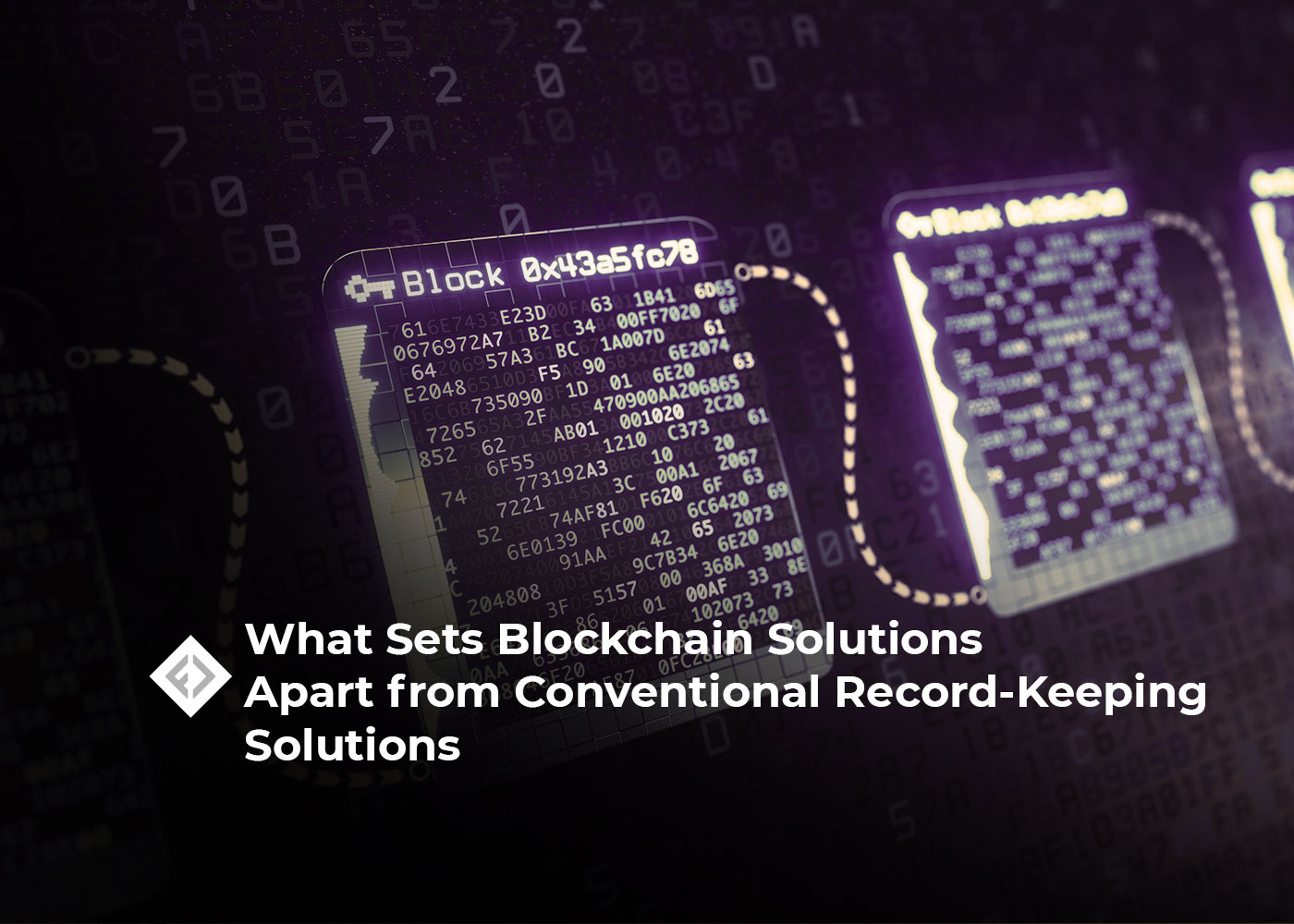As the world becomes more interconnected, data and information must be exchanged securely. Blockchain is an innovative technology that promises to revolutionize traditional record-keeping solutions by providing a distributed ledger of transactions with secured access rights while still remaining safe from malicious activities. But what sets blockchain solutions apart from conventional record-keeping solutions? In this blog post, we’re exploring blockchain’s unique benefits compared to current record-keeping systems, so you can decide if investing in these technologies is worth it.
Let’s Quickly Explain: What Is Blockchain?
Blockchain is a digital ledger that allows information to be recorded and verified in a decentralized and secure manner. It is made up of a series of blocks, each of which contains a record of multiple transactions. Once a block is added to the chain, it cannot be altered or deleted, making it an immutable record of all transactions that have taken place.
The blockchain is secured through cryptographic algorithms and distributed consensus mechanisms, which prevent unauthorized changes and ensure that all transactions are valid. This allows for a transparent and trustworthy way to store and transfer data without intermediaries or third-party trust.

So, What Sets Blockchain Solutions Apart from Conventional Record-Keeping Solutions?
“What sets blockchain solutions apart from conventional record-keeping solutions?” you might ask. Blockchain solutions differ from conventional record-keeping solutions in several ways. One of the primary differences is that blockchain is a decentralized technology, meaning that it does not rely on a central authority to manage and verify transactions. Instead, transactions are validated by a network of nodes, which work together to reach a consensus on the state of the ledger.
Another key difference is that blockchain technology provides a high level of security through the use of cryptography. Transactions are encrypted and stored in a way that makes it virtually impossible for them to be altered or tampered with. This provides high transparency and immutability, which is essential for many applications such as digital asset transfer, supply chain management, and identity verification.
Additionally, blockchain technology enables greater efficiency and cost savings in record-keeping processes. By eliminating intermediaries and reducing the need for manual verification, blockchain solutions can significantly reduce the time and cost required to manage and verify transactions.











